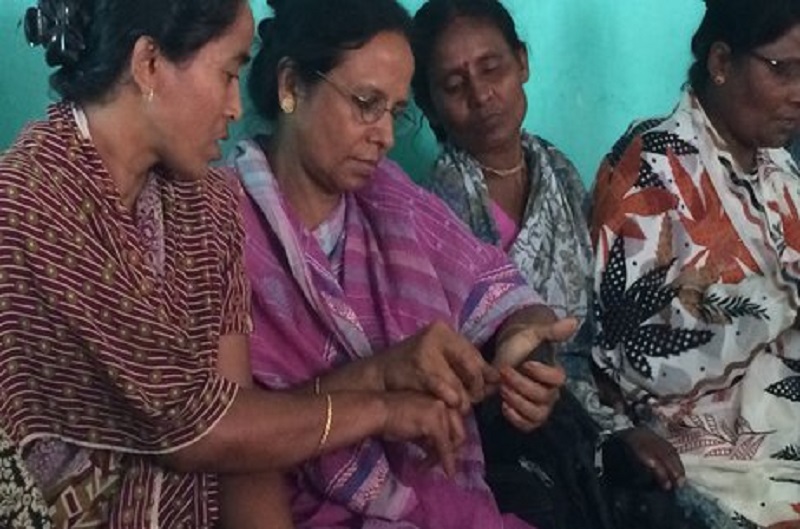
A social enterprise set up by Gates Cambridge Scholars has been named the Start-up Company of the Year at the Business Weekly Awards.
A social enterprise set up by Gates Cambridge Scholars has been named the Start-up Company of the Year at the Business Weekly Awards in Cambridge.
SimPrints, which is based at ideaSpace City, won the top prize at the 25th Anniversary Business Weekly Awards presentation dinner at Queens’ College, Cambridge on Tuesday. The award was accepted by co-founders Toby Norman (Chief Executive Officer) and Alexandra Grigore (Chief Technology Officer).
SimPrints is a non-profit tech company that has developed fingerprint scanners that connect wirelessly to mobile phones. Backed by the Bill and Melinda Gates Foundation and ARM Holdings, its custom on-board template extraction algorithm makes data transfer fast and secure – ideal for safely storing medical and other records.
It has developed an open-source API for Android devices and plans to expand to other platforms. Providers can seamlessly integrate SimPrints into nearly any smartphone or tablet app: fingerprint records can be stored with time stamps and GPS coordinates, not only improving the accuracy of database searches but also providing powerful data for managers to monitor and support the provision of care. The device is currently being piloted by health workers in Bangladesh in collaboration with BRAC and the Johns Hopkins Global mHealth Initiative.
Speaking about the new award, Toby Norman [2011], who is doing a PhD in Management Studies, said: “What a great opportunity this has been for us. With the new support from Business Weekly, our technology can ensure that even the poorest have the right to an identity within health systems.”
The idea for SimPrints came through a global health competition where teams of students had to address different health challenges. SimPrints won the competition and Toby Norman formed a development team which sought funding through various grant initiatives. Last year the team, which includes several Gates Scholars as well as other specialists, won funding of $250,000 from the Bill and Melinda Gates Foundation's Saving Lives at Birth competition and $180,000 from Cambridge-based ARM Ltd, whose technology is incorporated in over 95% of all the world's mobile phones.
SimPrints was also featured this week on the BBC World Service's Click programme. To listen in, click here. The feature is around nine minutes in.To find out more about SimPrints visit www.simprints.com












